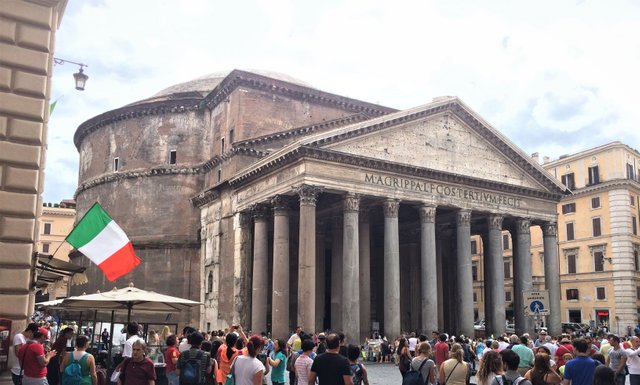The Pantheon demonstrates how Italy's ancient origin refuses to be forgotten in the hustle-and-bustle of contemporary city life

Originally built as a Roman temple after the Battle of Actium in 31 BC, this magnificent structure is one of the most iconic and well preserved sites in Rome. Although it now serves as a catholic church, the original inscription "M·AGRIPPA·L·F·COS·TERTIVM·FECIT" (which translates to "Marcus Agrippa, Son of Lucius, During His Third Time as Consul) is featured prominently above the portico as a testament to the Pantheon's origins. It is visited by roughly 5 million people annually.
I took this picture this summer and made sure to get the Italian flag flying in the foreground. I think it demonstrates a perfect juxtaposition of the old and the new that makes Italy so special to me. Sites like this are sprinkled throughout the country's sprawling metropolises. Italians live and work among buildings, fountains, sculptures and streets that are literally hundreds or thousands of years old. The readily apparent marriage between its ancient roots and thriving modernity is just one of the reasons why Italy is so wonderfully unique and beautiful beyond comparison.